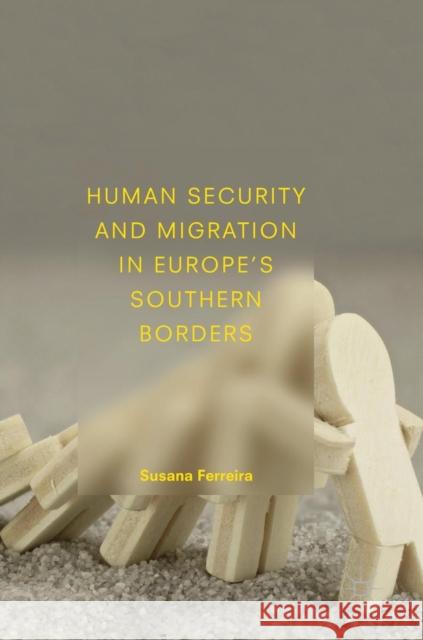Human Security and Migration in Europe's Southern Borders » książka



Human Security and Migration in Europe's Southern Borders
ISBN-13: 9783319779461 / Angielski / Twarda / 2018 / 211 str.
Human Security and Migration in Europe's Southern Borders
ISBN-13: 9783319779461 / Angielski / Twarda / 2018 / 211 str.
(netto: 325,85 VAT: 5%)
Najniższa cena z 30 dni: 308,41
ok. 16-18 dni roboczych.
Darmowa dostawa!
This book examines the management of migratory flows in the Mediterranean within an international security perspective.
"This well-versed book is a combination of in-depth empirical research and existing literature on migration and security which enhances our understanding of migration governance and management in the context of European Union with a special emphasis on Italy and Spain. ... this book is likely to be an important source for policymakers and researchers." (Dr Diotima Chattoraj, Migration Letters, Vol. 16 (2), April, 2019)
Susana Ferreira is Researcher at the Portuguese Institute of International Relations (IPRI), NOVA University of Lisbon, Portugal, and the Research Centre on Security and Defense, Portuguese Military University Institute (CISDIUM).
This book examines the management of migratory flows in the Mediterranean within an international security perspective. The intense migratory flows registered during the year 2015 and the tragedies in the Mediterranean Sea have tested the mechanisms of the Union’s immigration and asylum policies and its ability to respond to humanitarian crises. Moreover, these flows of varying intensities and geographies represent a threat to the internal security of the EU and its member states. By using Spain and Italy as case studies, the author theorizes that the EU, given its inability to adopt and implement a common policy to effectively manage migratory flows on its Southern border, uses a deterrence strategy based on minimum common denominators.
1997-2026 DolnySlask.com Agencja Internetowa
KrainaKsiazek.PL - Księgarnia Internetowa









